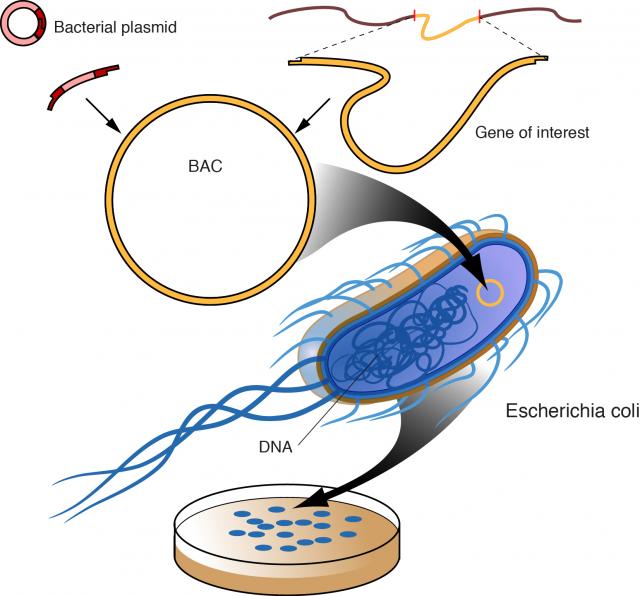Bacterial Artificial Chromosome (BAC)
A bacterial artificial chromosome (BAC) is an engineered DNA molecule used to clone DNA sequences in bacterial cells (for example, E. coli). BACs are often used in connection with DNA sequencing. Segments of an organism's DNA, ranging from 100,000 to about 300,000 base pairs, can be inserted into BACs. The BACs, with their inserted DNA, are then taken up by bacterial cells. As the bacterial cells grow and divide, they amplify the BAC DNA, which can then be isolated and used in sequencing DNA. Courtesy: National Human Genome Research Institute

Source: .
http://www.genome.gov/
http://www.genome.gov/
License: Public Domain. If you are going to redistribute this image online, a hyperlink to the above source page is mandatory.
© 2007–2024 XoaX.net LLC. All rights reserved.
